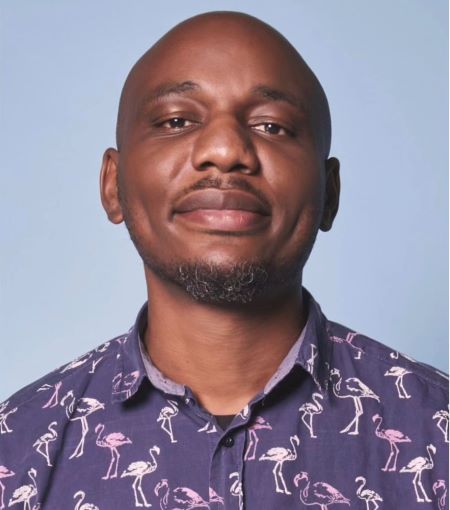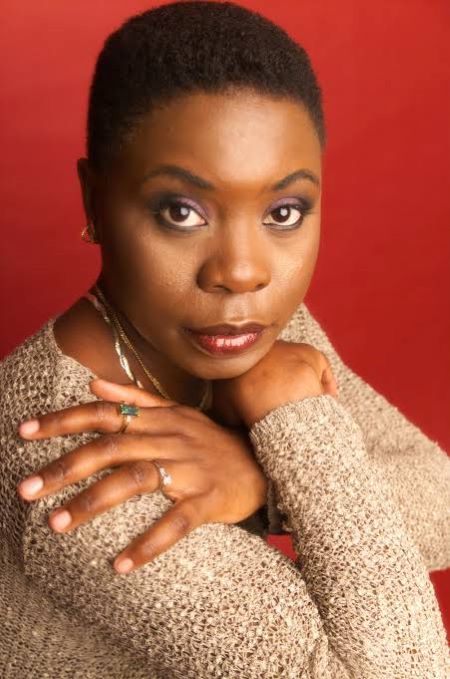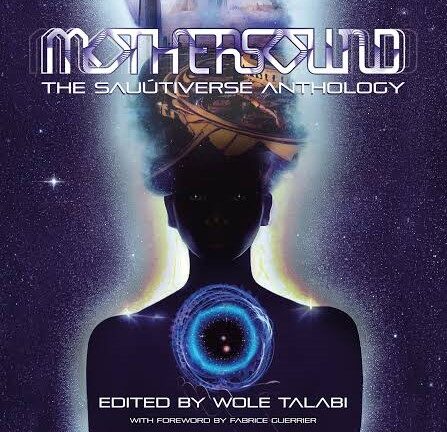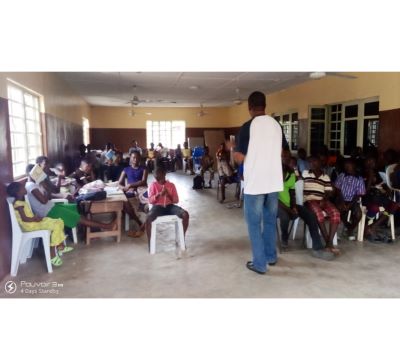Amadin Ogbewe
.Every other day, we see and hear of the progress being made by Africans and Africans in the diaspora; in various fields and sectors. One, however, manages to be deep yet relatively quiet, and that is the world of speculative fiction, which has experienced major shakes by Africans in the last few years and perhaps beyond.
As the world over begins to recognize and identify with the richness of our stories, strengthened by a culture of folklore and tradition, it becomes clearer how important the place of the continent is on the larger scale.
While Africans are breaking records by contesting (and winning) international awards from within the continent like writer Donald Oghenechovwe or Africans in Diaspora are garnering worldwide acclaim like Nnedi Okarafor or shaping the perception of what Africa has to offer through beautiful stories of the speculative by all African writers, an interesting concept has steadily swept over like a desert storm: The First Collaborative African Sci-Fi/Fantasy Universe: The Sauútiverse Anthology.
What’s better than one or two African creators? How about a collective? The concept of the Sauútiverse predates the release of the anthology in late 2023, featuring numerous stellar African writers from across the continent like Eugen Bacon, Tobias S. Buckell, Oghenechovwe Donald Ekpeki, Stephen Embleton, Dare Segun Falowo, T.L. Huchu, Somto Ihezue, others and edited by Wole Talabi. No, it goes further than that. I reached out to Wole to get his insight on this shared world, the first of its kind for African science fiction and fantasy.
On the origin of the idea, he says;
“One of the greatest things about speculative fiction is the freedom to imagine anything – it is a creatively boundless genre. But the act of writing itself can be a lonely business. Writers have whole worlds and characters often that live only in our heads for days or years, slowly depositing them on the page until its ready to be shared with the world. But many African cultures thrive on community, and I think the idea of a community creating together, instead of alone, is more fun and interesting than the typical solitary writing process.
And I wanted to do that with other African authors and the greater African diaspora. That is why I have always admired and enjoyed the concept of a “shared world” – a fictional setting with its own set of rules where multiple authors can create stories. So, in November 2022 when Fabrice Guerrier, the Haitian American author and founder of Syllble Studios (a studio focused on collective storytelling), and Ainehi Edoro of Brittlepaper, reached out to me about potentially creating an African writers collective, I jumped at it. I sought out a group of like-minded volunteers from five African countries, we all came together, and formed a collective to create a shared world.”
On the name Sauúti, he says, “The name is inspired by the Swahili word for “voice”. It’s a fictional setting based on a blend of African cultural worldviews and inspirations. The Sauútiverse is a five-planet system orbiting a binary star, where everything revolves around an intricate magic and technological system based on sound, oral traditions, and music. Even the planet names are inspired by various African language words for “Song”.
The Sauútiverse includes science-fictional elements of artificial intelligence and space flight, with both humanoid and non-humanoid creatures. While also embracing fantasy elements like magic, spirits, and supernatural creatures – many of which are inspired by real-world African beliefs, folktales, and myths.”
Wole says the connectivity was made possible through a “story Bible” after start dialogue to draw out themes and incorporate cultures from various countries. As the editor he ensured the bigger picture was always in mind, while ensuring cohesiveness as each contributor studied the story Bible and got to work.
According to him, the Sauúti anthology ended up including members who were not part of the founding team and hopes the expansion continues.
“We believe the Sauútiverse can be the next step in the evolution of African speculative fiction by being a sandbox for generations of African and African diaspora writers to work together and imagine endless possibilities,” he said.
On challenges, he says there were many as the project was one of many view points and characters. “And we also had situations where some ideas were in conflict but by being patient and understanding of each other, we were able to find a path forward and proceed with making the Sauútiverse what it has become.”
He highlights the state of the speculative fiction industry as a whole and Africa’s part in it.
“I also think that there is more interest in speculative fiction from African publishers who used to reject such work as not being “literary” enough. And even now, more overtly genre African speculative fiction books are being published by Western publishers too.

Wole Talabi, Editor, Mothersound: The Sauútiverse Anthology
This means many young African writers are now appearing regularly in major international venues and magazines. There is a whole generation of young writers across the African continent (re)embracing speculative fiction. So, I think the first challenge of recognition/acceptance is slowly being overcome. But in terms of local production and economics, development is slow due to infrastructural challenges.
There is only one dedicated speculative fiction magazine (Omenana) and this is something we hope to see more of. We also need African publishers to launch home-grown African speculative fiction stories and market them effectively. 2023 saw the birth of two new African publishing house imprints dedicated to SFF – Phoenix by Ouida Books and Mother by Jacana Media so there is hope on that front.
There are also some smaller local publishers and single-person imprints doing their best and producing valuable, noticeable work. I think a lot of these challenges require capital, time, and funding to truly be overcome. For now though, I hope to see growth of collaborative writing and homegrown communities – writing collectives and shared worlds where writers, artists, editors and creatives can create and maybe even publish independently, setting up their own local publishing ecosystem.”
Mothersound: The Sauútiverse Anthology is an enthralling body of work. I was elated to get some words from contributors who poured out their creativity and passion for the project.
Award winning Tanzanian-Australian author Eugen Bacon emphasizes the importance of community in the project.

Eugen Bacon, Contributor, Mothersound: The Sauútiverse Anthology
She says, “As an African-Australian woman in touch with my roots and living in multiplicity, now in Australia my new home country, it is important that I navigate my spaces in ways that are fulfilling and enrich my personal, familial and societal growth. I am the self and other. I am hybrid. I am a sum of many. As a founding member of the Sauútiverse, I discover myself every day in my fiction. I have so far written six short stories, a novella and a novel set in the Sauútiverse, this fictional civilisation based on a blend of African cultural worldviews and inspirations.
‘Sina, the Child With No Echo’ was my first Sauúti story in one of my favourite planets on the Sauútiverse: Ekwukwe. I love Ekwukwe for its echoes and high potential for rhythm and song, which marries well with the sound magic of this universe.
I connected deeply with Sina, this boy—disconnected from family—who has a deep longing to belong, having been born without an echo, to his parent’s distress, and abandoned as a baby at the edge of the desert forest. But being without echo turns out to be a gift, and this story is about those mentors who rescue us, like Sina’s childless aunt Zawa-Zawa, and finding strength in weakness. It’s about belief—believing in yourself, and I had so much fun with the musicality of the text in rhyme, verse and repetition.”
She adds, “Our first Sauúti anthology, MOTHERSOUND, is holding its own in awards and recognitions. I’m now co-editing a new anthology with members of the Sauúti Collective, Cheryl Ntumy and Stephen Embleton. This way, I continue to navigate my Afrocentric spaces—with like-minded creatives.”
Cheryl Ntumy, a Ghanaian speculative fiction writer also responded when I reached out. She had this to say, “It’s been a wonderful, educational experience working in a shared universe, learning from incredibly talented people and figuring out how to accommodate different perspectives. I feel like the process has really enriched my stories and will continue to do so. Plus, it’s great to have a group of people who can offer insight and feedback on your work.
Most importantly, I think it marks a shift towards a more communal approach to storytelling in general – the sense of building not just a fictional world but also a community of storytellers.
I have always enjoyed collaborating with other writers and artists. I think collaborative creative work is incredibly powerful, not just for the arts but for social development as well.”
Editor Wole Talabi hints of more to come. “We are set to expand even more. There is another anthology in the works,” he says.
The shared universe now exists and persons many more will. Perhaps we could even witness a multiverse, with that being the current craze. It is not far fetched for stakeholders in the creative sector to begin to look to African stories for a breath of fresh air, particularly with respect to collaborative worlds. Africa advances. It expands.




